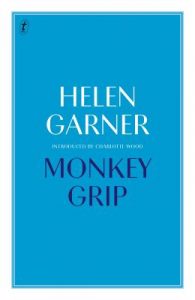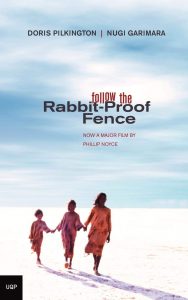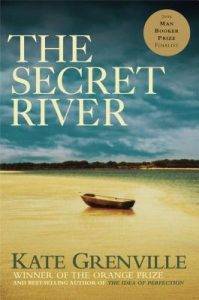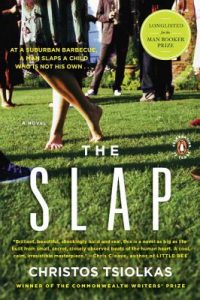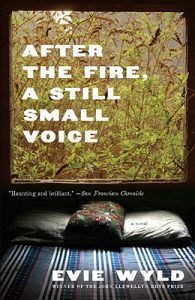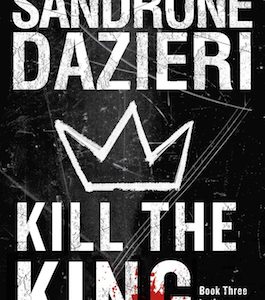I fell in love with Australian fiction somewhat belatedly, having lived and worked in Sydney for a spell in the nineties, without any real awareness of the writers listed below. I’d been back in London around five years when I read The Secret River by Kate Grenville. It was my first taste of the Australian landscape and experience in a novel, and I went on to read everything Grenville has written. A year or two later I discovered Tim Winton and I was besotted. Winton uses the Australian vernacular to magical effect, and reading his books I felt steeped in a world I only half understood, but believed in entirely. This was the English language made strange to me, a British reader, and I loved it all the more for that.
If the novels listed below have something in common besides their Australian setting, it is that they all held me under their spell. I had to get to know a set of characters rather than have them introduced to me. I had to decode the language (sometimes this was easy, sometimes not). I devoured them all when I was writing and researching my debut novel The Silence, which is set in Australia between 1967 and 1997. They all helped and informed my own writing in various ways. The Silence was inspired by my failure to emigrate to Australia. It explores the experience of leaving one’s home behind, or being forcibly removed from it.
The following ten books are my recommended starting point to anyone wanting to read more Australian fiction. A few of them are my favorite books of all time, and would make the cut on a list of international authors. They are listed here in order of publication date because I’ve tried and failed to list them in order of preference.
Helen Garner, Monkey Grip (1977)
Monkey Grip is Garner’s debut, and is set in the period in which it was written, in mid-1970s Melbourne. I found it fascinating for that reason, as an insight into the experience of a young woman in that era, torn between feminist ideology and romantic love. It is moving, laconic, still fresh 45 years later, telling the story of a love affair between a single mother and a heroin addict. Despite a mixed critical reception, it went on to win the National Book Council Award in 1978, coming to be recognized as ‘the voice of a generation,’ at a time when ‘serious’ Australian literature was almost exclusively male. In 2018, Monkey Grip was selected by the British Broadcasting Corporation (BBC) as number 47 of a list of “100 stories that shaped the world”—the only Australian novel on the list.
Doris Pilkington Garimara, Rabbit Proof Fence (1996)
This is the true account of Molly, Daisy and Gracie, who were taken away from their families in 1931 as part of the Australian child removal policy. Told by Molly’s daughter Doris, this is the incredible story of how the three girls escaped the children’s home they’d been sent to in Western Australia and walked 1600 kilometers back to their home in Jigalong. Although this is not fiction, it is written in novel form, and I’ve included it because it has become the defining story about the Stolen Generation, inspiring the prize-winning film of the same name, released in 2002.
Peter Carey, The True History of the Kelly Gang (2000)
I have to confess this is the only Peter Carey I’ve ever got through, and I was a little daunted by this at first. But it’s worth persevering. The language has its own rhythm—close to poetry, with very little punctuation or grammar. The book is loosely based on the life of Ned Kelly, a bushranger and outlaw who reputedly wore bulletproof armor in his final shootout with the police, for which he was convicted. It took some audacity to retell such an infamous tale, to assume Ned Kelly’s voice and to invent new elements to the story. The general consensus is that he pulled it off, winning a host of awards, including the Booker Prize and the Commonwealth Writers Prize in 2001.
Tim Winton, Dirt Music (2001)
Tim Winton is Australia’s literary God, and deservedly so. His writing is colloquial, fresh, sharp. He captures the landscape, wildlife and people of Australia with such precision and economy, his books can be savored for the language alone, although he tells a good yarn too. His novel Cloudstreet is considered by many to be the Great Australian Novel. I’ve picked Dirt Music because it’s such a great example of Winton’s ability to put a character through hell and pull her out again the other side, taking us with her. It’s also a romantic novel about an intense love affair that is moving and never sentimental. It was shortlisted for the Booker in 2002 and it won the Miles Franklin award in the same year. Probably his best in my opinion, but you can’t go wrong with anything by Tim Winton, including his non-fiction.
Kate Grenville, The Secret River (2005)
The Secret River is set in early Australia, following the story of William Thornhill, who arrived as a convict and went on to claim ownership of land on the Hawkesbury River. It’s a brave and powerful book that was shortlisted for the Booker Prize and won the Commonwealth Writers’ Prize in 2006. It’s also a well-told and moving story that will leave you feeling uneasy about the way Australia was settled, with enough nuance to stop short of easy judgements against any of the characters. The Secret River has been made into a critically acclaimed play which was produced in collaboration with Aboriginal artists.
Christos Tsiolkas, The Slap (2008)
The Slap is an instantly engaging and accessible story, following the fallout among a group of friends and family when a man slaps a young child at a barbecue. Told from multiple points of view, each chapter immerses us entirely in the experience and world view of a different character from a diverse Melbourne community. The result is an impressive exercise in empathy. I felt quite unmoored by it at times, all my assumptions called into doubt. The Slap is the standout book from one of Australia’s most acclaimed writers, winning the Commonwealth Writers Prize in 2009. It was made into two TV mini series, one in Australia and one in North America.
Evie Wyld, After the Fire, a Still Small Voice (2009)
Evie Wyld was born in London but spent part of her childhood in Australia. After the Fire is her debut, set on the East coast of Australia, about the trauma of war and the experiences that bind two men together despite their fractured relationship. Various critics have suggested that Wyld’s writing is on a par with Tim Winton and Peter Carey. I don’t like to draw comparisons but there are lines from After the Fire that I still think of, a decade after I first read it, and it has held its position as one of the best books I’ve ever read. It won the John Llewellyn Rhys Prize and a Betty Trask Award. Wyld went on to win a host of prizes for her second novel, All the Birds, Singing and her third novel, Bass Rock, is out now.
Liane Moriarty, Big Little Lies (2014)
Interestingly, Liane Moriarty was a bestseller in North America long before she was recognized in her native Australia. In 2014 she was topping the New York Times bestseller list but was almost unknown in Australia apart from a small group of loyal fans. This might explain why the televised drama of Big Little Lies was given an American setting, although the universality of her themes of friendship and relationships might have been exported anywhere. Moriarty also writes about the darker side of human relationships, and her handling of these darker themes are what stayed with me. The TV series went on to win 8 Emmy awards.
Jane Harper, The Dry (2016)
Jane Harper’s debut, The Dry, has sold over a million copies worldwide, and has won awards ranging from the CWA Gold Dagger for Best Crime Novel, the British Book Awards Crime and Thriller Book of the Year, the Australian Book Industry Awards Book of the Year and the Australian Indie Awards Book of the Year. The Dry appealed to everyone, whether they were hardened fans of crime fiction or lovers of character-led stories, thanks to her relatable detective Aaron Falk. But The Dry was also very much an Australian novel. Harper writes evocatively about Australia, building its climate and landscape into the plot and establishing Australia as a perfect setting for a murder mystery, a rival to the chill of Scandi-noir.
Clare G Coleman, Terra Nullius (2017)
Terra Nullius is a deliberately unsettling read, set in an Australia that is familiar but not quite possible to fix in time or place. The author keeps us guessing, suggesting that all is not as it seems and delivering a twist at just the right moment. This is a book that is hard to define, which is part of its power. Coleman won the black&write! Fellowship in 2016 and went on to be shortlisted for the Aurealis Awards in 2017 and the Stella Prize in 2018.
***


